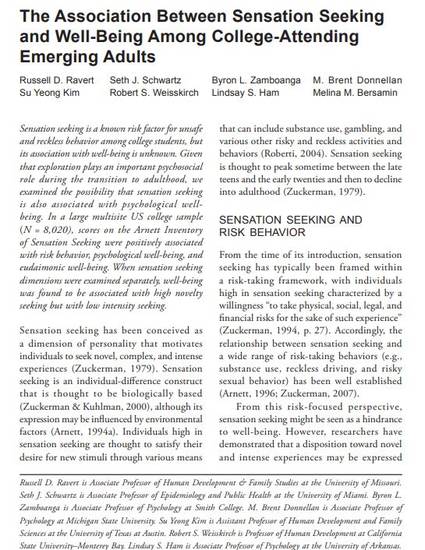
Article
The Association Between Sensation Seeking and Well-Being Among College-Attending Emerging Adults
Journal of College Student Development
(2013)
Abstract
Sensation seeking is a known risk factor for unsafe and reckless behavior among college students, but its association with well-being is unknown. Given that exploration plays an important psychosocial role during the transition to adulthood, we examined the possibility that sensation seeking is also associated with psychological well-being. In a large multisite US college sample (N = 8,020), scores on the Arnett Inventory of Sensation Seeking were positively associated with risk behavior, psychological well-being, and eudaimonic well-being. When sensation seeking dimensions were examined separately, well-being was found to be associated with high novelty seeking but with low intensity seeking.
Disciplines
Publication Date
2013
DOI
10.1353/csd.2013.0004
Citation Information
Russell D. Ravert, Su Yeong Kim, Seth J. Schwartz, Robert S. Weisskirch, et al.. "The Association Between Sensation Seeking and Well-Being Among College-Attending Emerging Adults" Journal of College Student Development Vol. 54 Iss. 1 (2013) p. 17 - 28 Available at: http://works.bepress.com/rob-weisskirch/14/
